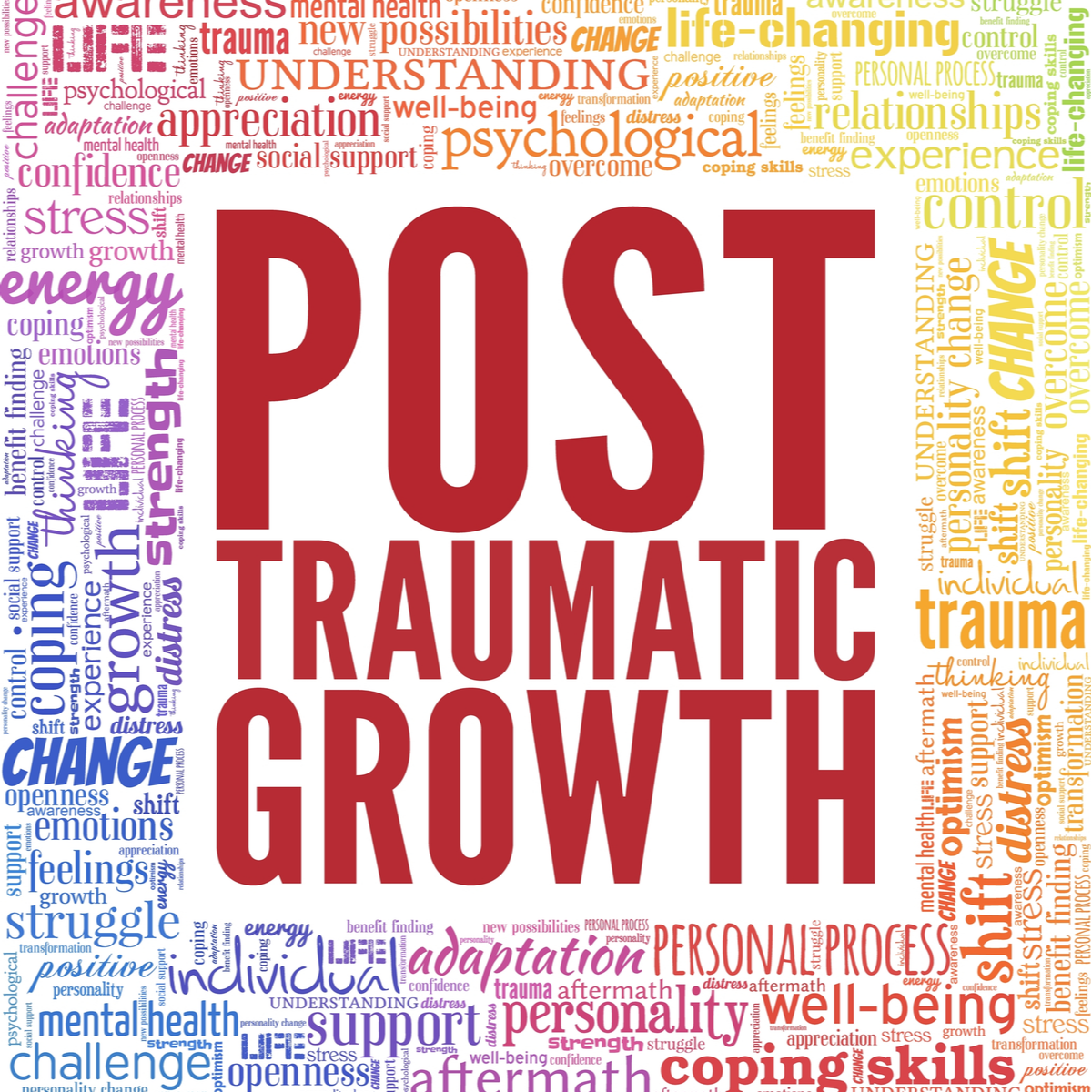Post-Traumatic Growth (PTG) is defined as the “positive psychological change in the wake of struggling with highly challenging life circumstances,” by Richard Tedeschi, PhD, and Lawrence Calhoun, PhD, who coined the term in 2004. Tedeschi recently reflected on the pandemic and opportunity for Growth After Trauma in Harvard Business Review.
For most of us, life has become even more ‘highly challenging’ since March 11, 2020 when the World Health Organization declared COVID-19 a global pandemic. The mounting daily threat of illness and death to ourselves, our families, and our communities has persistently waxed and waned for the past 18 months, leaving our nervous systems on a roller coaster—seemingly without end.
For Risking Connection agencies providing trauma-informed care, the pandemic has doubled the dose of ‘highly challenging’ struggles for trauma-survivors and staff alike. Survivors’ lives have been greatly disrupted, peeling away structures and supports that are essential to safety and healing, while many have also experienced (directly and indirectly) the impact of COVID illness and death. Treaters have been increasingly stretched, impacted both by vicarious trauma at work as well as secondary trauma at home due to the same pressures and worries COVID has brought to their own families and communities. Additionally, Risking Connection agencies have faced increased financial uncertainty; they’ve been strained to retool program and service delivery, and have been overwhelmed by devastating staff shortages and turnover in a labor market that shows little promise of improvement.
Even in cases where RC agencies, staff, and clients are experiencing improved COVID-related conditions, many of us are simply worn down by the cumulative impact of the tumult. Simply stated, we are languishing – experiencing a sense of stagnation and emptiness, leaving us feeling as though we are muddling through our days. I reflected on my personal experience with COVID languishing in my June 'Fatherhood Journey' blog post, which was inspired by 'There's a Name for the Blah You're Feeling: It's Called Languishing', authored by organizational psychologist Adam Grant.
While COVID-related trauma and languishing continue, Risking Connection treaters and agencies can look to the post-traumatic growth model as a source of hope and healing by joining the Traumatic Stress Institute’s 15th Annual Day of Learning and Sharing. In this half-day event entitled ‘Post-Traumatic Growth: Facilitating Transformation in our RC Communities,' TSI staff will co-create safe virtual space for RC Treaters to learn about the PTG model and connect (in Zoom breakouts and large group) to explore the following questions:
- What negative experiences and losses have you as an RC Treater and your RC Agency recently experienced?
- How might RC Treaters and Agencies facilitate growth from these negative experiences and loses?
- What has that growth looked like (or what might it look like) for RC Treaters and Agencies?
Post-event resources and a facilitation guide will be offered to support RC agencies in promoting post-traumatic growth.
Together we will have the opportunity to shift our individual and collective narratives, moving from trauma and languishing to a post-traumatic growth perspective through personal development, exploring new possibilities, improving relationships, fostering a greater appreciation for life, as well as spiritual and creative growth.


